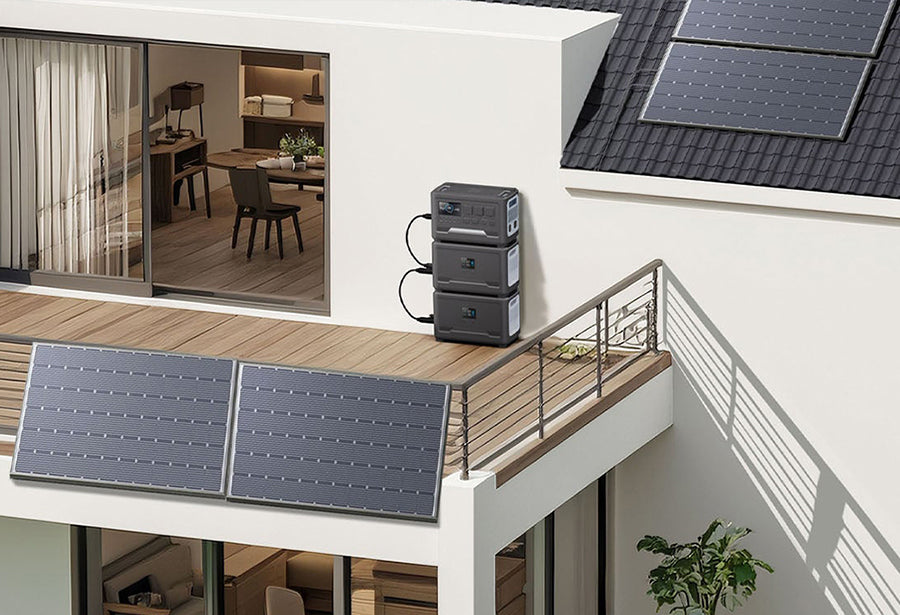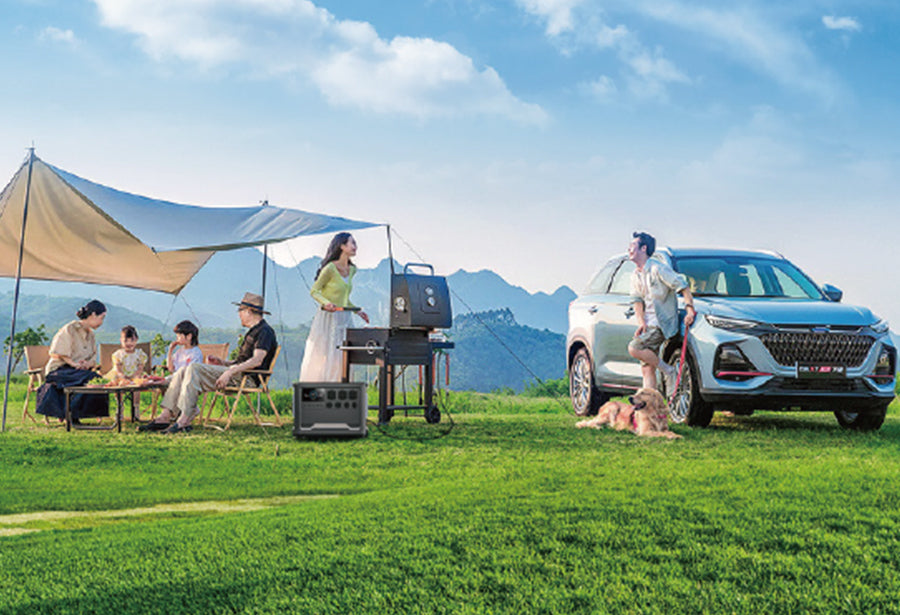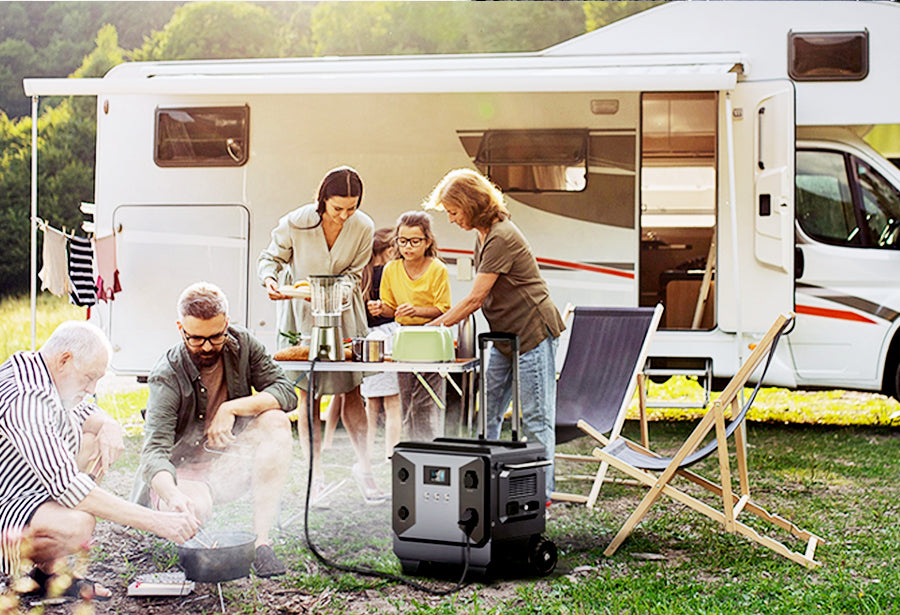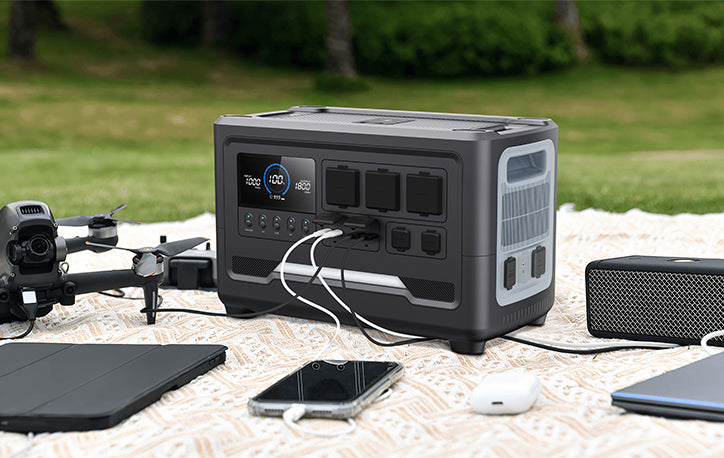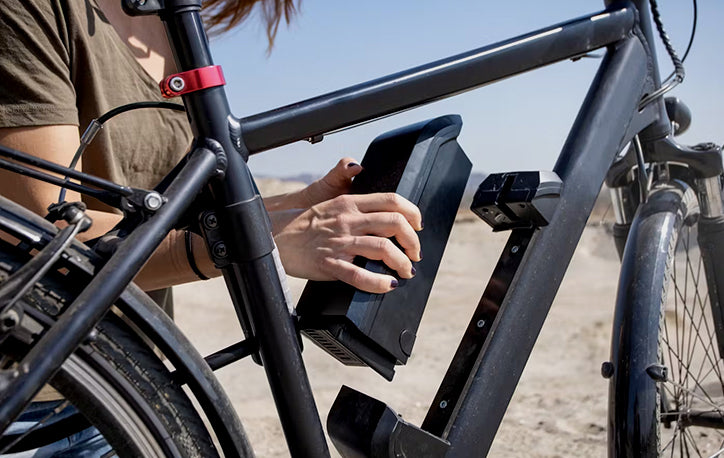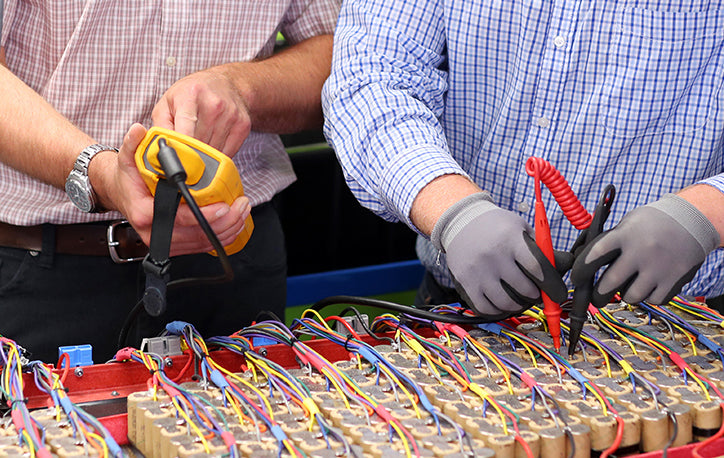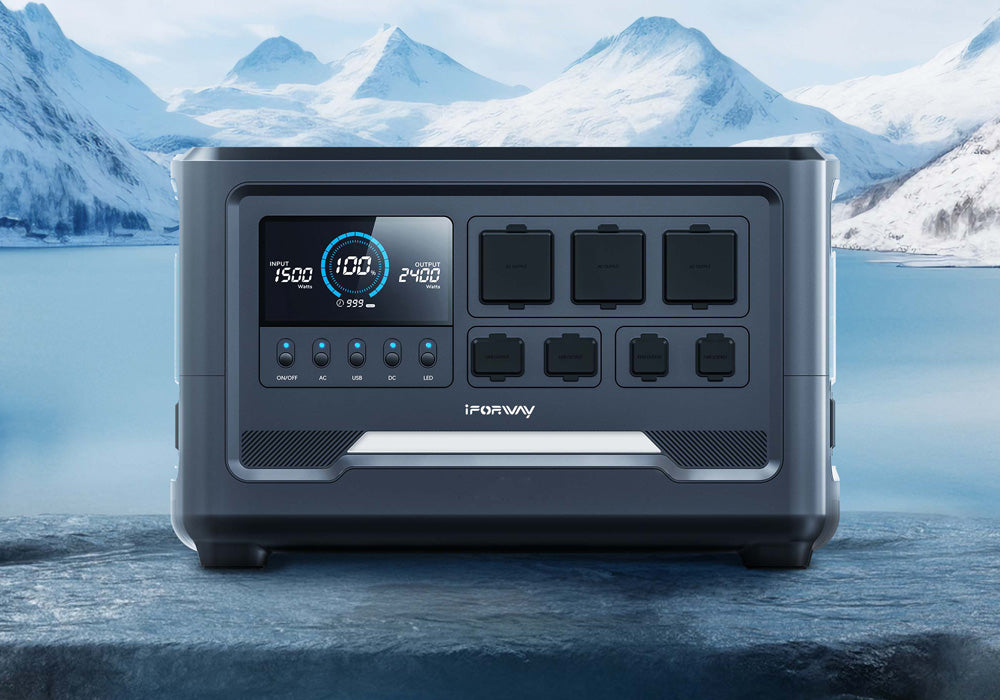
Dla każdego właściciela domu posiadanie odpowiedniego systemu baterii zapasowej jest nie tylko kluczowe dla zapewnienia podstawowych potrzeb energetycznych podczas przerw w dostawie prądu, ale może również pomóc w oszczędzaniu na rachunkach za energię. Jest to szczególnie ważne, jeśli mieszkasz w rejonach podatnych na częste przerwy w dostawie prądu. System baterii zapasowej zapewnia niezawodne źródło energii i może znacznie obniżyć koszty energii elektrycznej, szczególnie w okresach szczytowego zapotrzebowania na prąd. Jak więc określić odpowiedni system baterii zapasowej dla potrzeb energetycznych Twojego domu? Przyjrzyjmy się kluczowym krokom w wyborze idealnego systemu baterii zapasowej.
1. Zrozumienie zużycia energii
Pierwszym krokiem w określeniu wymaganej pojemności baterii zapasowej jest zrozumienie, ile energii zużywa Twój dom w skali miesiąca. Możesz odwołać się do swojego rachunku za prąd lub użyć licznika energii, aby zmierzyć zużycie energii przez każde urządzenie. Oto typowe dane dotyczące zużycia energii przez popularne urządzenia domowe:
- Lodówka: Standardowe lodówki zużywają od 100 do 350 watów, podczas gdy modele wyższej klasy mogą zużywać od 350 do 780 watów.
- Piekarnik: Standardowy piekarnik elektryczny zużywa około 3000 watów, a modele wyższej klasy osiągają nawet 5000 watów.
- Klimatyzator: W zależności od wielkości i typu, klimatyzatory zużywają zazwyczaj od 1000 do 5000 watów.
- Inne urządzenia: Mniejsze urządzenia, takie jak komputery (50 do 300 watów) i telewizory (100 do 500 watów), zużywają stosunkowo mniej energii, podczas gdy systemy oświetleniowe z żarówkami LED zazwyczaj zużywają bardzo mało energii.
Obliczając średnie zużycie energii przez te urządzenia, możesz uzyskać przybliżony obraz całkowitego zużycia energii w Twoim domu, co pomoże Ci wybrać odpowiedni system baterii zapasowej.
2. Określenie krytycznych obciążeń
Krytyczne obciążenia to całkowita moc potrzebna przez urządzenia niezbędne do działania podczas przerwy w dostawie prądu. Nie wszystkie urządzenia muszą działać podczas awarii, dlatego należy priorytetowo traktować najważniejsze urządzenia, zazwyczaj w tym:
- Lodówka: Aby zapobiec zepsuciu się żywności.
- Oświetlenie: Aby zapewnić odpowiednie oświetlenie w domu.
- Klimatyzacja lub ogrzewanie: Aby utrzymać komfort w domu.
Po zidentyfikowaniu tych krytycznych urządzeń, możesz oszacować zapotrzebowanie na moc, które musi być obsługiwane przez Twój system baterii zapasowej.
3. Rozważ długość przerwy w dostawie prądu
Po zidentyfikowaniu krytycznych obciążeń kolejnym krokiem jest rozważenie, jak długo może trwać przerwa w dostawie prądu. Czas trwania przerw w dostawie energii może się różnić w zależności od regionu, a jeśli mieszkasz w rejonie narażonym na długie przerwy, możesz potrzebować wybrać większy system baterii zapasowej. Doskonałym wyborem w tym przypadku jest system baterii zapasowej iFORWAY, który zapewnia ciągłe zasilanie dla Twojego domu podczas długotrwałych przerw w dostawie prądu.
iFORWAY G24PRO + 5*BT30 System baterii zapasowej:
- Pojemność: 17 400 Wh
- Moc wyjściowa: 6000 W
- Łączy się przez Bluetooth i WiFi z aplikacją iFORWAY do monitorowania w czasie rzeczywistym
- Wielokrotne opcje ładowania (w tym ładowanie słoneczne)
- Odpowiedni do długotrwałych przerw w dostawie prądu, zdolny zasilać większość urządzeń w Twoim domu
4. Oblicz całkowite obciążenie
Obliczenie całkowitego obciążenia to kluczowy krok w wyborze odpowiedniego systemu baterii zapasowej. Na przykład, jeśli Twoje całkowite krytyczne obciążenie wynosi 3000 watów, a przerwa w dostawie prądu trwa 12 godzin, całkowita energia potrzebna wyniesie:
- 3000 W × 12 godzin = 36 kWh
Na tej podstawie musisz wybrać system baterii zapasowej o pojemności nominalnej co najmniej 36 kWh, aby upewnić się, że nie dojdzie do przeciążenia.
5. Wybór odpowiedniego systemu baterii zapasowej
Przy wyborze systemu baterii zapasowej należy uwzględnić kilka czynników, oprócz pojemności i mocy wyjściowej:
Pojemność baterii i moc wyjściowa
Pojemność baterii odnosi się do ilości energii, którą może przechowywać, podczas gdy moc wyjściowa określa, ile urządzeń może być zasilanych jednocześnie. Przy wyborze systemu upewnij się, że pojemność baterii odpowiada potrzebom energetycznym Twojego domu, a jej moc wyjściowa jest wystarczająca do zasilania kilku urządzeń jednocześnie.
Typ baterii
Do najczęściej stosowanych typów baterii należą:
- Baterie litowo-jonowe: Wysoka wydajność, długi okres użytkowania, idealne do długoterminowego użytku.
- Baterie litowo-żelazowo-fosforanowe (LiFePO4): Są bezpieczniejsze, bardziej odporne na wysokie temperatury i mają dłuższą żywotność w porównaniu do innych baterii, co czyni je idealnym wyborem dla wysokowydajnych, o dużej mocy systemów baterii zapasowych.
- Baterie kwasowo-ołowiowe: Niska cena, ale mniej wydajne, wymagające regularnej konserwacji.
Dla systemów zapasowych do domu baterie LiFePO4 są zazwyczaj najlepszym wyborem ze względu na ich dłuższą żywotność i wyższą efektywność.
Opcje ładowania
Idealny system baterii zapasowej powinien oferować kilka opcji ładowania, takich jak ładowanie słoneczne, zasilanie AC, a nawet ładowanie z generatora, aby zapewnić, że bateria pozostanie naładowana podczas przerwy w dostawie prądu. Systemy baterii iFORWAY oferują opcje ładowania słonecznego, pozwalając Ci w pełni wykorzystać zasoby naturalne bez ponoszenia dodatkowych kosztów.
Bezpieczeństwo
Ponieważ baterie zapasowe przechowują znaczne ilości energii, bezpieczeństwo jest kluczowe. Upewnij się, że system baterii, który wybierasz, posiada ochronę przed przegrzaniem, przeładowaniem i zwarciem. Systemy baterii iFORWAY wyposażone są w zaawansowane technologie bezpieczeństwa i przeszły rygorystyczne certyfikacje bezpieczeństwa.
6. Żywotność baterii i konserwacja
Żywotność baterii zależy od kilku czynników, z których najważniejszym jest liczba cykli ładowania i warunki temperaturowe. Baterie LiFePO4 zazwyczaj wytrzymują ponad 3000 cykli ładowania, co zapewnia ponad 10 lat użytkowania. W porównaniu do tego, baterie kwasowo-ołowiowe mają krótszą żywotność, zazwyczaj wynoszącą tylko 500 do 700 cykli ładowania. Jeśli zależy Ci na długotrwałym systemie baterii zapasowej, baterie LiFePO4 powinny być priorytetem.
Podsumowanie
Przy wyborze systemu baterii zapasowej do domu ważne jest uwzględnienie potrzeb energetycznych Twojego domu, zużycia energii przez urządzenia, długości przerwy w dostawie prądu oraz opcji ładowania. Systemy takie jak iFORWAY G24PRO + BT30 i iFORWAY G36PRO + BT30 oferują dużą pojemność i wydajny wynik mocy, co czyni je idealnymi dla wielu gospodarstw domowych. Jeśli potrzebujesz długoterminowego wsparcia energetycznego podczas przerw w dostawie prądu lub chcesz zapewnić niezawodne zasilanie awaryjne, te zaawansowane systemy baterii są doskonałym wyborem. Dodatkowo, korzystanie z ładowania słonecznego nie tylko pomaga chronić środowisko, ale także pozwala osiągnąć niezależność energetyczną bez polegania na sieci.
Inwestowanie w niezawodny system baterii zapasowej nie tylko poprawia bezpieczeństwo energetyczne Twojego domu, ale także zapewnia większą wygodę i spokój ducha dla Twojego gospodarstwa domowego.
Recent Posts
Blog Tags
How Competitive Electricity Markets Help Business Energy Buyers Optimize Costs and Efficiency
As the future of business energy procurement moves toward greater sustainability and efficiency, competitive electricity markets will play a vital role in shaping the energy solutions of tomorrow.
Global Portable Power Station Market Analysis: Growth Trends, Size Forecast
The portable power station market is experiencing rapid growth, driven by the demand for clean energy, the surge in outdoor activities, and increasing awareness of power security. In the future, portable power stations will evolve toward higher power, smart features, and multifunctionality, providing users around the world with more reliable energy solutions.

